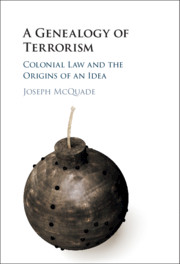Using India as a case study, Joseph McQuade demonstrates how the modern concept of terrorism was shaped by colonial emergency laws dating back into the nineteenth and early twentieth centuries. Beginning with the 'thugs', 'pirates', and 'fanatics' of the nineteenth century, McQuade traces the emerging and novel legal category of 'the terrorist' in early twentieth-century colonial law, ending with an examination of the first international law to target global terrorism in the 1930s. Drawing on a wide range of archival research and a detailed empirical study of evolving emergency laws in British India, he argues that the idea of terrorism emerged as a deliberate strategy by officials seeking to depoliticize the actions of anti-colonial revolutionaries, and that many of the ideas embedded in this colonial legislation continue to shape contemporary understandings of terrorism today.
Praise for the book:
"A brilliant deconstruction of the colonial prose of counter-terrorism and its post-colonial legacy, McQuade's book provides new insights into how legal states of exception were crafted to delegitimize revolutionary violence. A must read for anyone wishing to understand the true nature of British ‘rule of law' in India and its global ramifications." - Sugata Bose
"The declaration of a global war on terrorism in 2001 did not come out of the clear blue sky. Instead, as Joseph McQuade demonstrates in this brilliantly conceived and researched genealogy, some of its most forgotten roots lie in Britain's colonial administration in India and its diplomatic efforts on the world stage. An essential contribution to imperial and international legal history." - Samuel Moyn
Further information is available here.
--Mitra Sharafi
